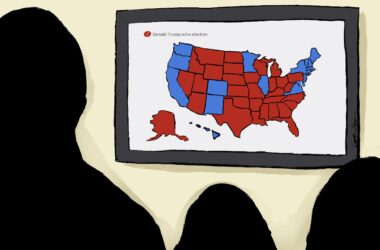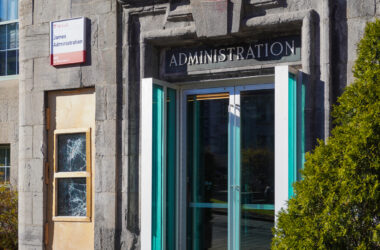The federal government’s Canada Emergency Student Benefit (CESB) program, which provides a monthly deposit of $1,250 or $2,000 aiming to alleviate financial insecurity caused by COVID-19, has left a group of students scrambling to pay bills. The benefit is available until August 2020 but is only accessible to domestic students, leaving the 30 per cent of McGill’s international students with little to no financial support.
The CESB was designed as an alternative to the broader Canada Emergency Response Benefit (CERB) targeted at students. Daniel Béland, Political Science professor and director of the McGill Institute for the Study of Canada, detailed why the CESB was developed.
“The idea was that a lot of students won’t be able to find work this summer because unemployment is skyrocketing, and many students rely on [summer] jobs to pay the tuition to save for the forthcoming academic year,” Béland said.
As only permanent residents and Canadian citizens are eligible to apply for the CESB, international students, who pay far higher tuition than their domestic counterparts, are ineligible. Béland attributed the decision to only cater to domestic students to Canada’s federal system of government.
“Tuition money goes to universities, which are provincial in nature, and CESB is paid by federal taxpayers,” Béland said. “So the two are not related directly in the sense that tuition money from international students doesn’t end up in Ottawa.”
Heela Achakzai, U3 Arts, is from Pakistan. She saw many of her fellow international students rushing to return home, especially as borders began to close.
“In March, there was only one week when people could decide whether to fly back home or not, maybe even a couple days,” Achakzai said. “If somebody was unable to fly, that means you’re just stuck here […] with your lease and stuck with paying so much money. So many of my friends were [initially] very glad this rolled out, then we found out we couldn’t apply. That [$1,250/month] would cover my rent.”
On the other hand, Catherine Shi, U2 Arts, said that she felt the CESB provided her enough financial support to meet her needs, but acknowledged that the requirement stating applicants must be seeking work was not fair to everyone.
“I think [the CESB] is a good idea because [for the] over 50 internships I [applied to], out of all of them, I got one interview,” Shi said. “[But] you shouldn’t have to risk your life, especially for someone who is immunocompromised, it’s not fair to argue that they should be seeking employment.”
Students must be unemployed because of COVID-19 or actively seeking a job this summer to be eligible for benefits. However, students with jobs can earn up to $1,000 before taxes from their work per eligibility period and concurrently be eligible for the CESB. While students do not have to issue proof while applying, Canada Revenue Agency (CRA) officials have stated that they will check income statements during tax season next year to validate applicants actively sought or were employed.
Cara Piperni, Director of Scholarships and Student Aid at McGill, empathized with the difficulties that numerous students have been facing due to COVID-19, and explained that her office had made efforts to compensate for some of the financial burden. According to Piperni, 97 per cent of the university’s financial aid had already been delegated out by May.
“We immediately had a COVID-related student emergency bursary fund available thanks to the Provost [and Vice Principal (Academic)] contributing a significant amount of money and a fundraiser where generous donors and alumni also contributed,” Piperni said. “So we had more than [one] million dollars in bursaries to offer students around these immediate and urgent concerns in addition to our normal bursary and loan programs and the normal government student financial assistance programs that exist.”









